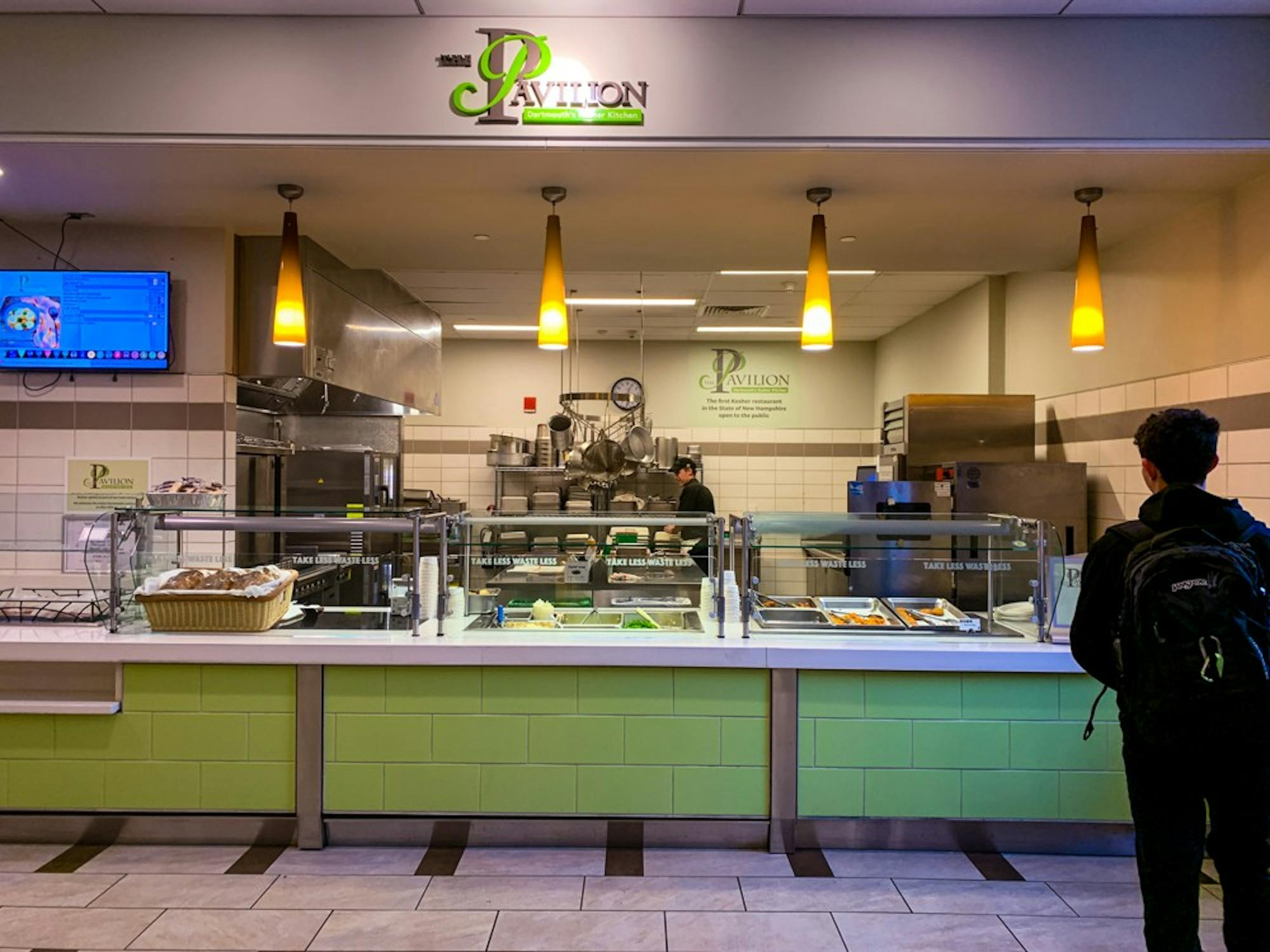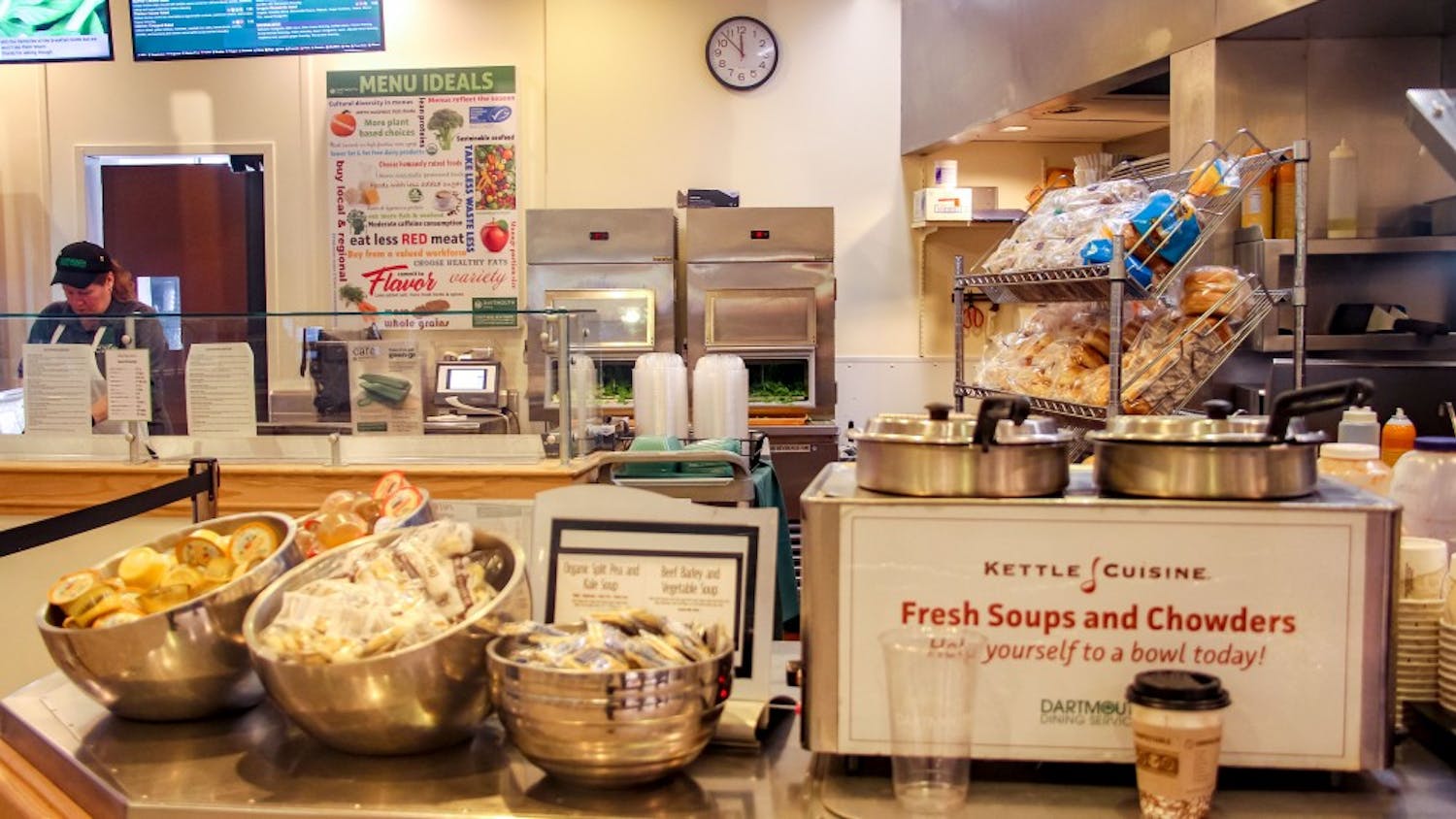Keeping Kosher is a varied process, depending on how strictly one follows Kosher laws and why one follows them. The laws of Kashrut deal with the preparation and consumption of food and outline certain practices that are not allowed. There are three main laws: avoid types of non-kosher animals, avoid having meat and dairy products together and only eat meat that was slaughtered in accordance with Jewish law.
A substantial improvement to Dartmouth’s Kosher options came in fall 2016, with the addition of prepackaged Kosher meals to be sold in the Courtyard Cafe and Novack Cafe. The push for these meals resulted because of a student petition for the addition of Orthodox-certified food that garnered over 700 signatures.
Before these changes, the options for Kosher students were the Pavilion and vegetarian station at the Class of ’53 Commons, as well as meals through the Roth Center for Jewish Life. However, the Pavilion only serves dinner Sunday through Thursday and lunch Monday through Friday.
Institute for Writing and Rhetoric professor Ellen Rockmore served on the committee the College convened in response to the 2016 petition. According to her, students at the time were not completely comfortable with the certification of Pavilion. The certification is done by Tablet K, a catering service based in New York, but this certification is not recognized by Conservative or Orthodox Judaism.
The prepackaged meals introduced in 2016, however, are made by Vermont Kosher, which is more strictly certified by the Chabad of Vermont.
Providing Kosher food in such a rural area is a challenge, especially in Hanover, which has no Kosher restaurant or butcher, according to Rockmore. But she said that Dartmouth Dining Services are dedicated to improving this aspect of campus life.
“My conclusion was that Dartmouth does an amazing job to provide Kosher options, given the lack of Jewish infrastructure in this part of the country,” Rockmore said.
In addition to DDS options, Chabad and Hillel offer resources for Jewish students. Both organizations offer meals during holidays and Friday night Shabbat dinners.
“Definitely if you are someone who is religiously involved in Judaism or kind of curious, or not even Jewish but want to understand more about the dietary and observed practices, then both Chabad and Hillel are really nice resources and really welcoming communities,” said Alex Small ’23, a member of Hillel.
Many students at Dartmouth observe different tenets of being Kosher, and there is a spectrum of what people practice and how they interpret Jewish texts, according to Small. For example, for Small, keeping Kosher is more on the dietary side rather than the preparation side.
“For me, it’s a mindfulness practice; it has less to do with the scripture and text and more for me as a way for me to understand what I’m putting in my body and what that means,” Small said. “I find I focus a lot more on what I eat holistically whenever I put certain restrictions in.”
Small tends to eat at ’53 Commons often, finding the vegetarian and the Pavilion stations to be good resources that allow him to keep Kosher at Dartmouth.
“It doesn’t feel like in order to keep Kosher I’m sacrificing anything in terms of quality relative to what else is in Foco,” Small said. “I would say it’s even better because in a dining hall they have to serve so many people, but since Pavilion is a smaller kitchen, they can focus more on what they’re making.”
On the other hand, Jonathan Gliboff ’20 considers himself more of an Orthodox Jew and keeps to the tenets of being Kosher more strictly. Because of this, he said the Pavilion does not meet his standards, and he eats most of his meals at the Courtyard Cafe or cooks them himself.
One of the challenges for Gliboff and other students is the cost of Kosher meals. Generally, Kosher food tends to be more expensive, according to Gliboff.
“The prices are definitely higher, and it’s annoying to be sure. That said, it’s understandable,” Gliboff said, “What the College charges is the minimum they could charge while still making it worth their while. They try to keep it as low as is reasonable for them, so it’s annoying, but I understand it entirely.”
Another issue is the question over whether the certification at the Pavilion should be made more strict so that it can accommodate all Kosher students. However, according to Gliboff, this process may be difficult because of how expensive it would be compared to the relatively small current population of Orthodox Jewish students.
“I think the conversation hasn’t stopped about [the Pavillion] becoming more Kosher in the future,” Gliboff said. “I’d love to see it become a Kosher kitchen that everyone can eat at, but at the same time, I understand why things are the way they are. I think it’s just about consistently looking for options and making sure that we’re on this progressive path where eventually the Kosher food will be Kosher for everyone.”




